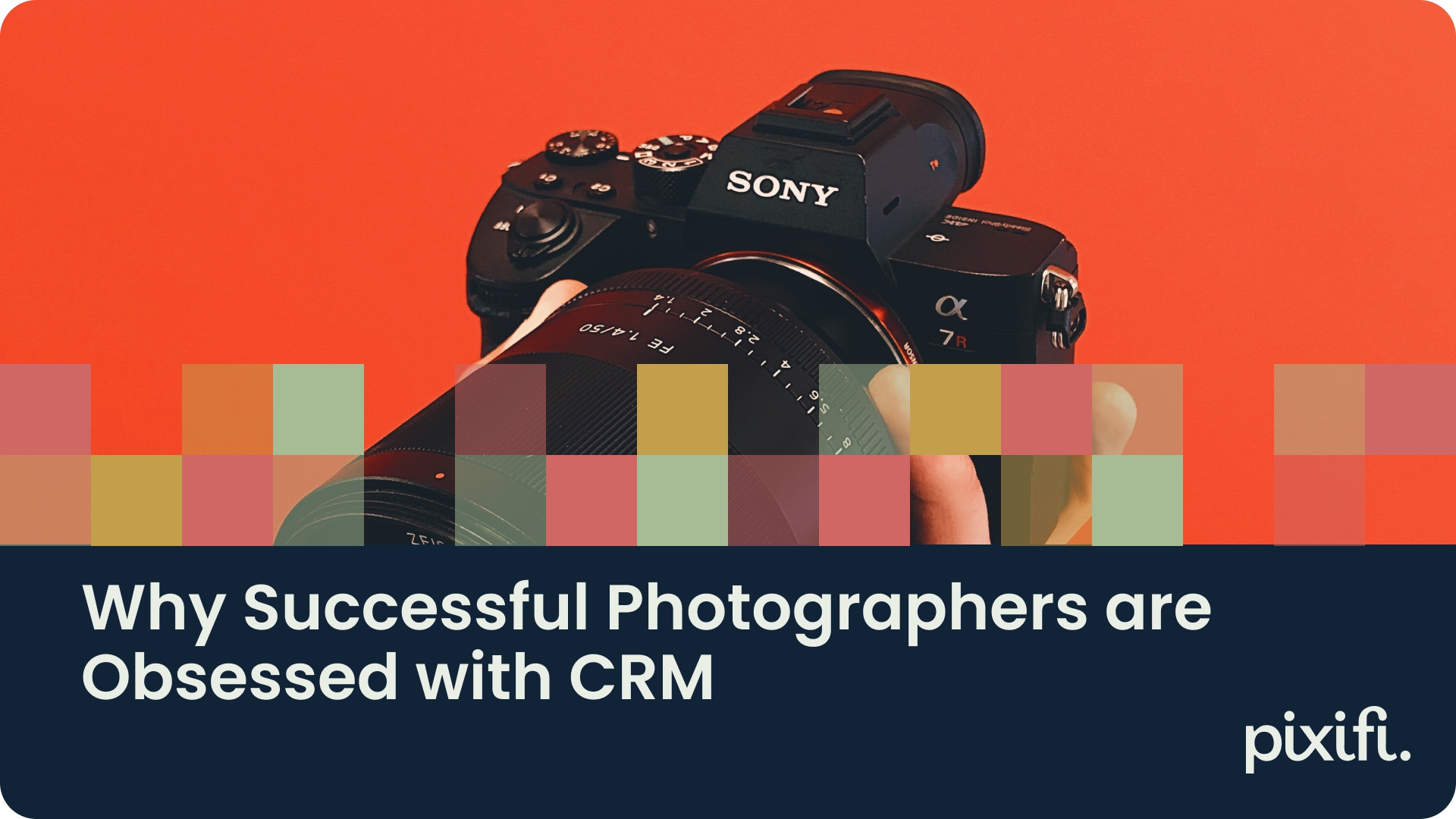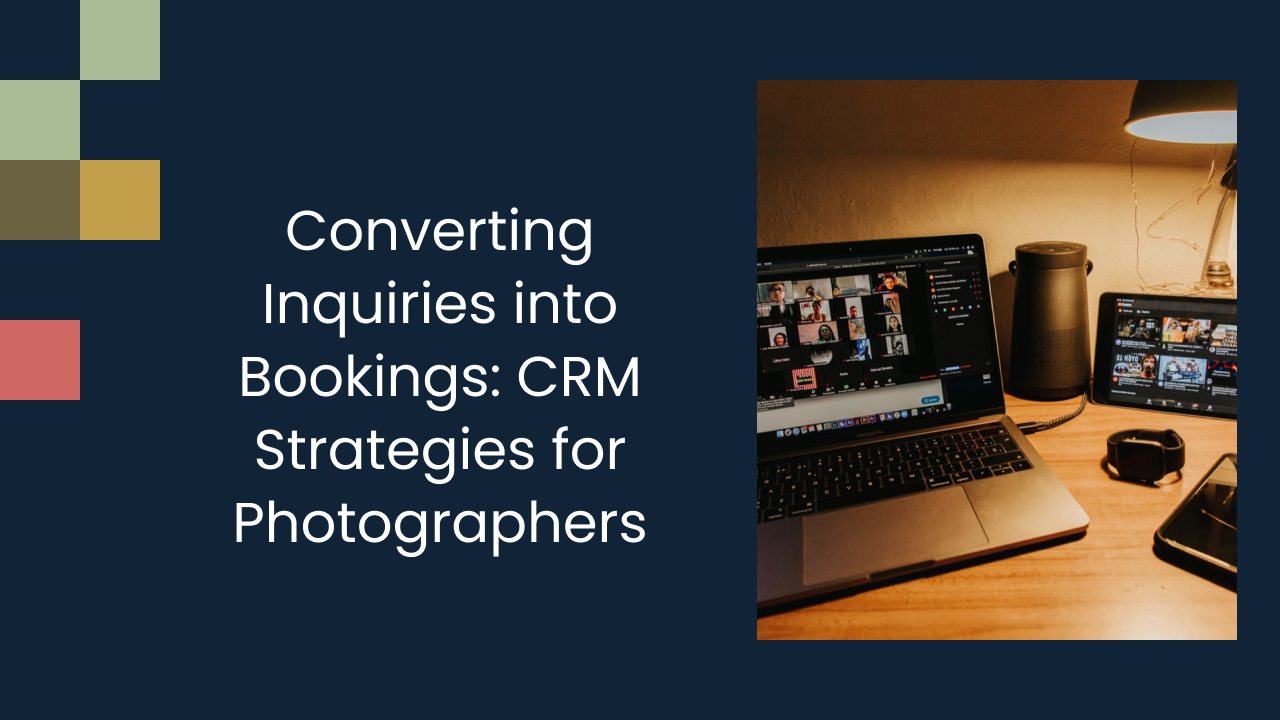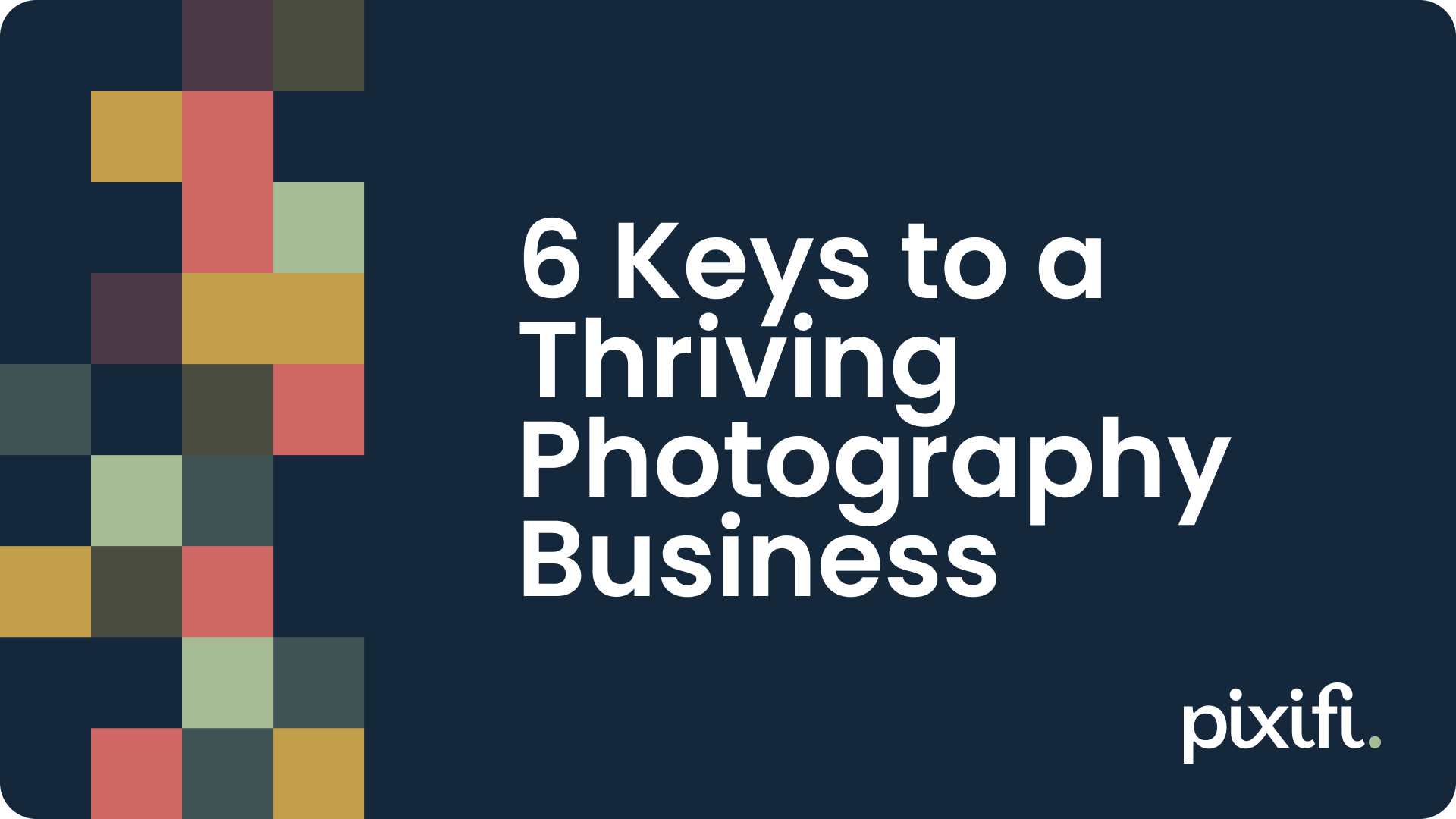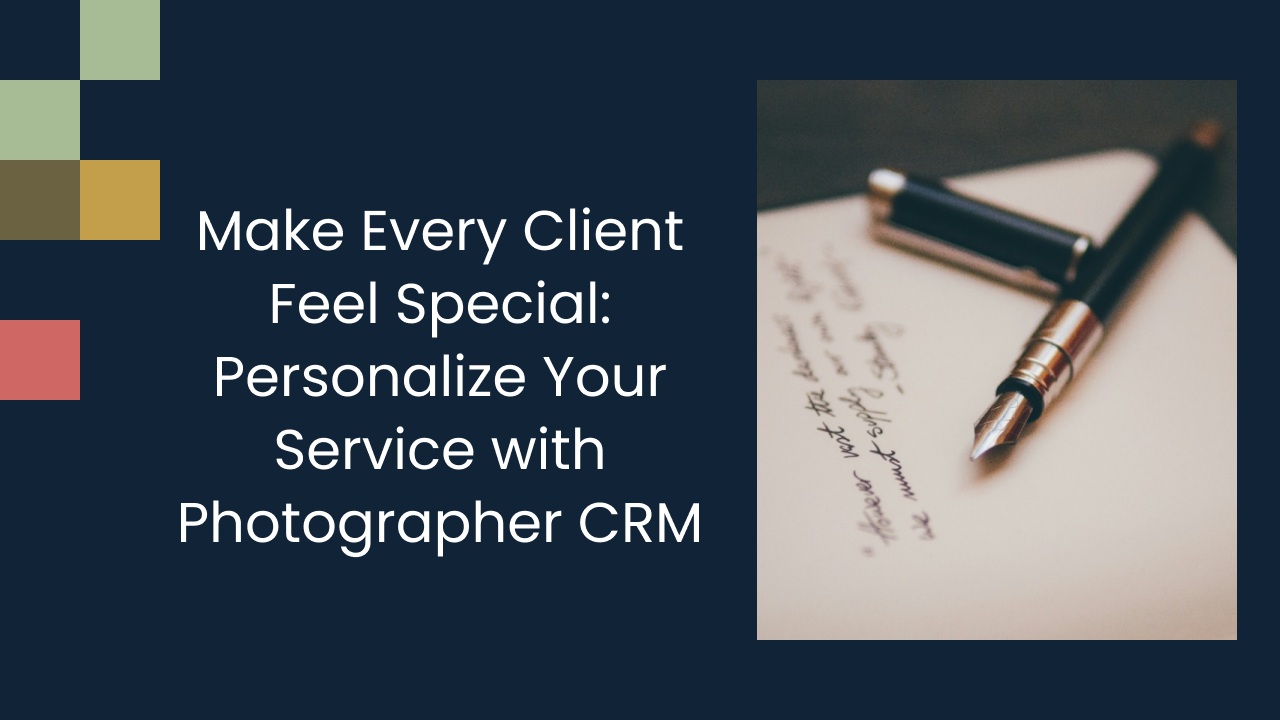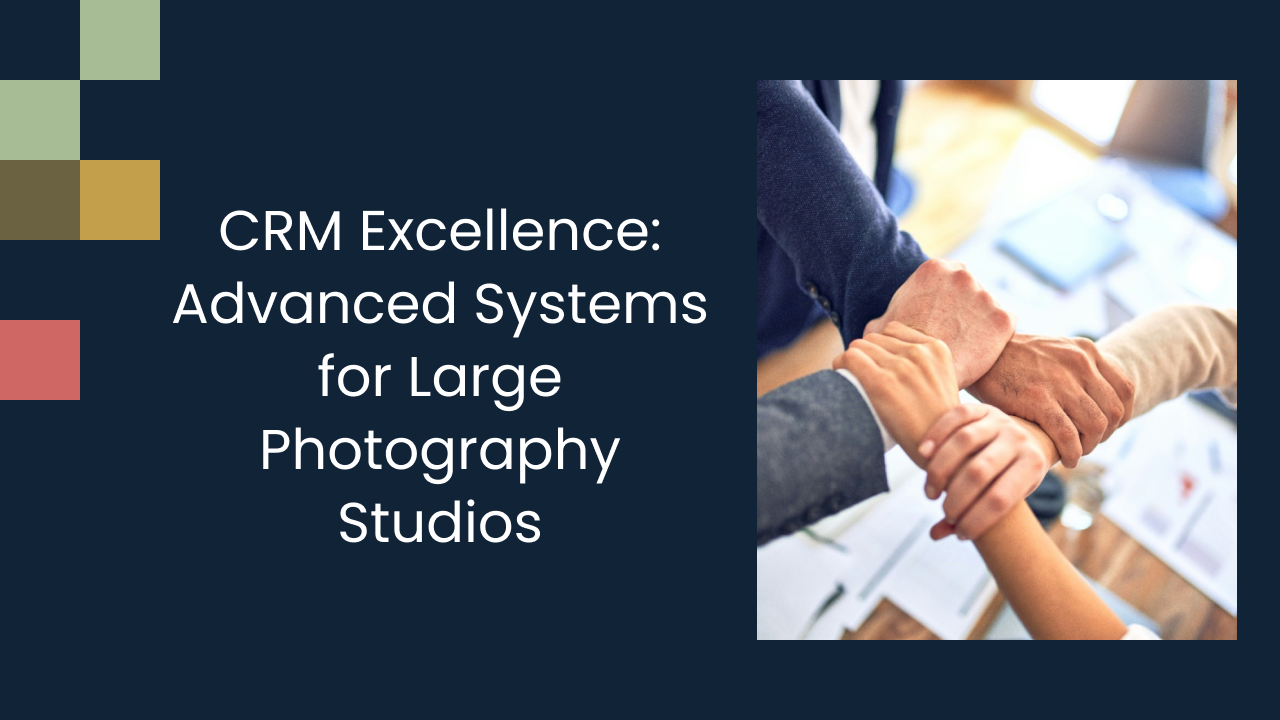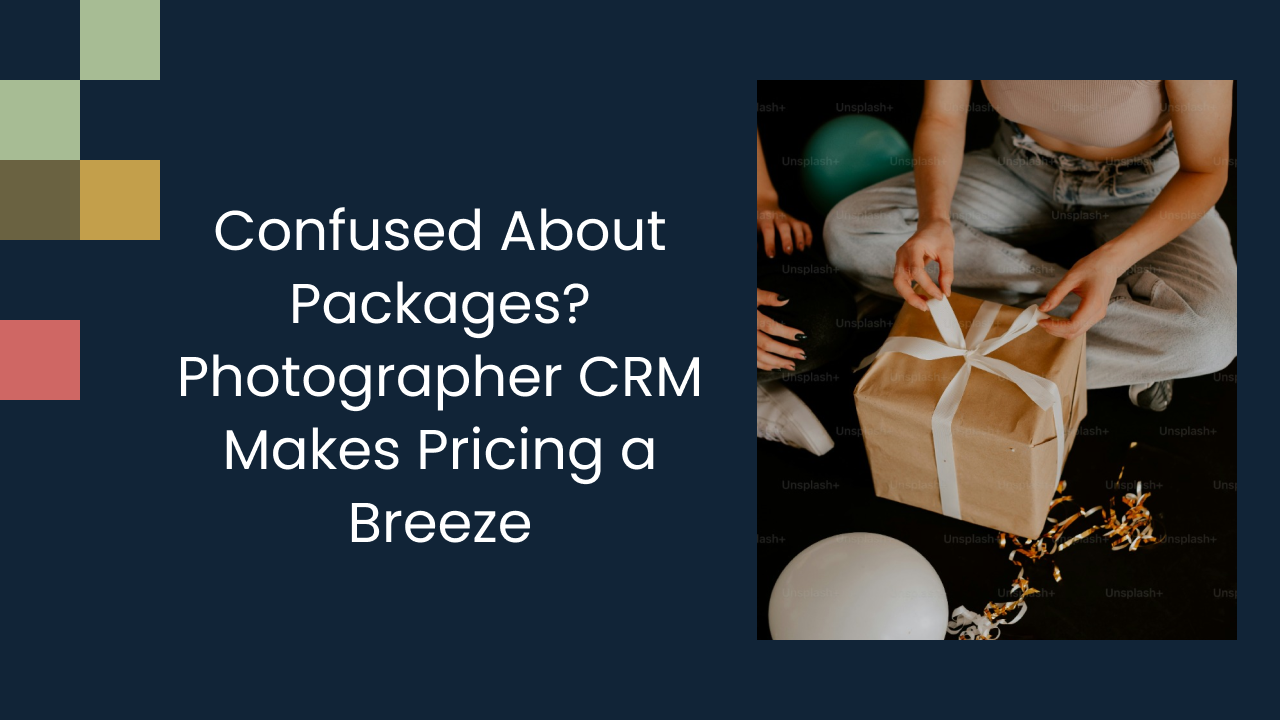Why Successful Photographers are Obsessed with CRM
In today's fast-paced and competitive photography industry, the key to success lies not just in capturing breathtaking images, but also in effectively managing your business operations. With the rise of technology, photographers are realizing the importance of Customer Relationship Management (CRM) tools in streamlining their workflows and enhancing their client relationships. This article aims to delve into the world of CRM and explain why successful photographers are becoming obsessed with it.
Understanding the Role of CRM in Photography
The Basics of CRM
CRM, which stands for Customer Relationship Management, is a software solution designed to help businesses effectively manage their interactions with current and potential clients. In the context of photography, CRM systems provide a centralized platform for organizing client data, scheduling appointments, sending invoices, and even tracking payments.
CRM and Photography: The Connection
At first glance, one might wonder what CRM has to do with photography. However, photographers who have incorporated CRM into their workflow will attest to its transformative power. CRM allows photographers to have a comprehensive view of their clients, making it easier to stay connected and address their specific needs. By enabling photographers to create personalized experiences and build lasting relationships, CRM ultimately enhances client satisfaction and loyalty.
One of the key benefits of CRM in photography is the ability to organize and manage client data efficiently. With a CRM system in place, photographers can easily store and access important information about their clients, such as contact details, preferences, and past interactions. This centralized database eliminates the need for manual record-keeping, saving photographers valuable time and reducing the risk of errors.
Moreover, CRM systems offer powerful scheduling features that streamline the appointment booking process. Photographers can view their availability at a glance and easily schedule sessions with clients. Automated reminders can be set up to ensure that both parties are well-prepared for the shoot, reducing the likelihood of missed appointments and last-minute cancellations.
Invoicing and payment tracking are also simplified with CRM. Photographers can generate professional-looking invoices directly from the system and send them to clients with just a few clicks. The CRM software can track payment statuses, making it easy for photographers to monitor outstanding payments and send reminders when necessary. This not only improves cash flow management but also enhances the overall professionalism of the photography business.
Another advantage of CRM in photography is the ability to create personalized experiences for clients. By having access to detailed client profiles, photographers can tailor their services to meet individual preferences and expectations. For example, if a client has a particular style or theme in mind for their photoshoot, the photographer can make note of it in the CRM system and ensure that the final results align with the client's vision.
Furthermore, CRM enables photographers to stay connected with their clients on a regular basis. Automated email marketing campaigns can be set up to send personalized messages, updates, and special offers to clients. This helps photographers nurture relationships and keep their brand top of mind. By consistently providing value and staying engaged, photographers can foster long-term loyalty and encourage repeat business.
In conclusion, CRM plays a crucial role in the photography industry by providing photographers with a comprehensive platform to manage client interactions and streamline business operations. From organizing client data and scheduling appointments to sending invoices and tracking payments, CRM systems offer numerous benefits that enhance client satisfaction and loyalty. By incorporating CRM into their workflow, photographers can elevate their business and create personalized experiences that leave a lasting impression on their clients.
The Benefits of CRM for Photographers
Running a photography business involves more than just capturing stunning photographs. It requires managing multiple clients, scheduling appointments, and maintaining effective communication. That's where Customer Relationship Management (CRM) comes in. CRM software can streamline business operations and enhance client relationships, making it an essential tool for photographers.
One of the key benefits of using CRM for photographers is the ability to automate routine processes. Appointment scheduling, for example, can be time-consuming and prone to errors. With CRM, photographers can set up automated scheduling systems that sync with their calendars, ensuring that no appointments are missed or double-booked. This not only saves time but also helps photographers stay organized and focused on their work.
Another advantage of CRM for photographers is the ability to centralize client information. Instead of scattered notes and contact details, CRM allows photographers to store all important client information in one place. This includes not only contact information but also preferences, specific shoot details, and even past interactions. By having a comprehensive view of each client, photographers can better tailor their services and anticipate their needs. This level of personalization not only makes clients feel valued but also helps photographers deliver exceptional experiences.
Effective client communication is crucial for any photographer, and CRM can greatly facilitate this. With CRM, photographers can easily access client information and communication history, allowing them to pick up where they left off in previous conversations. This not only saves time but also helps photographers provide a seamless and consistent experience for their clients. Additionally, CRM can automate email communication, sending personalized messages to clients for special occasions or reminders. This level of attention to detail helps photographers build strong relationships with their clients, fostering trust and loyalty.
Furthermore, CRM can provide valuable insights into client behavior and preferences. By analyzing data such as client demographics, shoot preferences, and purchase history, photographers can better understand their target audience and tailor their marketing efforts accordingly. This data-driven approach allows photographers to make informed decisions and optimize their business strategies, ultimately leading to increased client satisfaction and business growth.
In conclusion, CRM is a powerful tool for photographers that can streamline business operations, enhance client relationships, and drive business growth. By automating routine processes, centralizing client information, and facilitating effective communication, CRM empowers photographers to focus on what they do best: capturing stunning photographs and delivering exceptional experiences to their clients.
Key Features of CRM for Photographers
Customer Relationship Management (CRM) systems have become an essential tool for photographers, helping them streamline their business operations and improve client management. Let's take a closer look at some of the key features that make CRM invaluable for photographers.
Contact Management
A robust CRM system provides photographers with a centralized database to store client details such as names, addresses, phone numbers, and email addresses. This makes it easy to access and update client information whenever necessary. But CRM goes beyond just storing contact information. It allows photographers to add notes, tags, and categories to each client, making it easier to segment and personalize communication.
For example, a photographer can create tags for different types of clients, such as wedding clients, portrait clients, or corporate clients. This segmentation enables photographers to tailor their marketing efforts and communication strategies to specific client groups, increasing the chances of engagement and conversion.
Scheduling and Booking
With CRM, photographers can say goodbye to the hassle of back-and-forth emails and phone calls when it comes to scheduling appointments. CRM platforms often include scheduling features that allow clients to book sessions directly from a photographer's website, eliminating the risk of double bookings and ensuring efficient time management.
But the benefits of CRM scheduling go beyond just convenience. These platforms often integrate with calendar systems, sending automated reminders to both photographers and clients, reducing the chances of missed appointments. Additionally, photographers can set up customized workflows within the CRM to automate follow-ups and post-session communication, ensuring a smooth and consistent client experience.
Invoicing and Payments
Gone are the days of manually creating invoices and tracking payments. CRM systems offer convenient invoicing and payment solutions, allowing photographers to generate professional invoices for their clients and easily track payment statuses. This not only saves time but also ensures that photographers get paid promptly.
But CRM's invoicing capabilities go beyond just creating and sending invoices. These systems often integrate with popular payment gateways, allowing photographers to accept online payments directly through the CRM platform. This seamless integration not only provides a convenient payment method for clients but also simplifies the reconciliation process for photographers, making it easier to track income and manage finances.
Overall, CRM systems have revolutionized the way photographers manage their businesses. From contact management to scheduling and invoicing, these platforms offer a comprehensive suite of tools that help photographers streamline their workflows, improve client communication, and ultimately grow their businesses.
Choosing the Right CRM for Your Photography Business
Assessing Your Business Needs
Before diving into the world of CRM, it's essential to evaluate your specific business needs. Consider the size of your photography business, your target market, and the specific features you require. For example, if you often shoot weddings, you may need a CRM that offers advanced event management capabilities.
Comparing Different CRM Platforms
Once you've assessed your business needs, it's time to explore the myriad of CRM options available. Look for platforms that offer seamless integration with your website, easy customization options, and robust customer support. It's also worth reading reviews and seeking recommendations from fellow photographers to ensure you choose a reliable and user-friendly CRM solution.
Implementing CRM in Your Photography Business
Training and Adoption
Implementing a new CRM system requires proper training and adoption by all team members. Host training sessions or provide access to instructional materials to ensure that everyone understands how to use the CRM effectively. Encourage feedback and address any concerns as they arise to ensure a smooth transition.
Measuring Success and ROI
To gauge the effectiveness of your CRM implementation, it's important to measure key metrics such as client satisfaction, inquiry response time, and revenue growth. Additionally, tracking ROI can provide valuable insights into the impact of CRM on your photography business. Regularly evaluating these metrics will help you refine your CRM strategy and ensure continued success.
In conclusion, CRM has become a game-changer for successful photographers seeking to streamline their business operations and enhance client relationships. By embracing CRM technologies and utilizing their key features, photographers can unlock new levels of efficiency, personalization, and profitability. So, if you're a photographer looking to elevate your business to the next level, it's time to join the CRM revolution and discover why photographers are becoming obsessed with it.
Looking for an easier way to manage and grow your studio? Experience a platform built by a photographer, for photographers. Try it free for 2 weeks.
